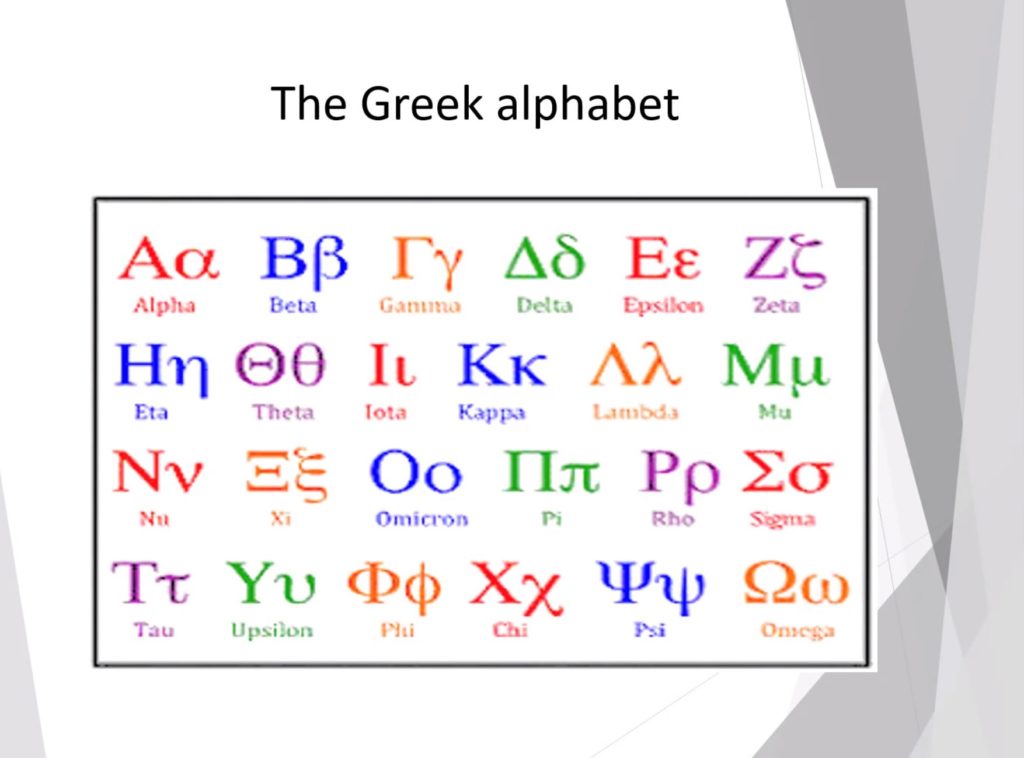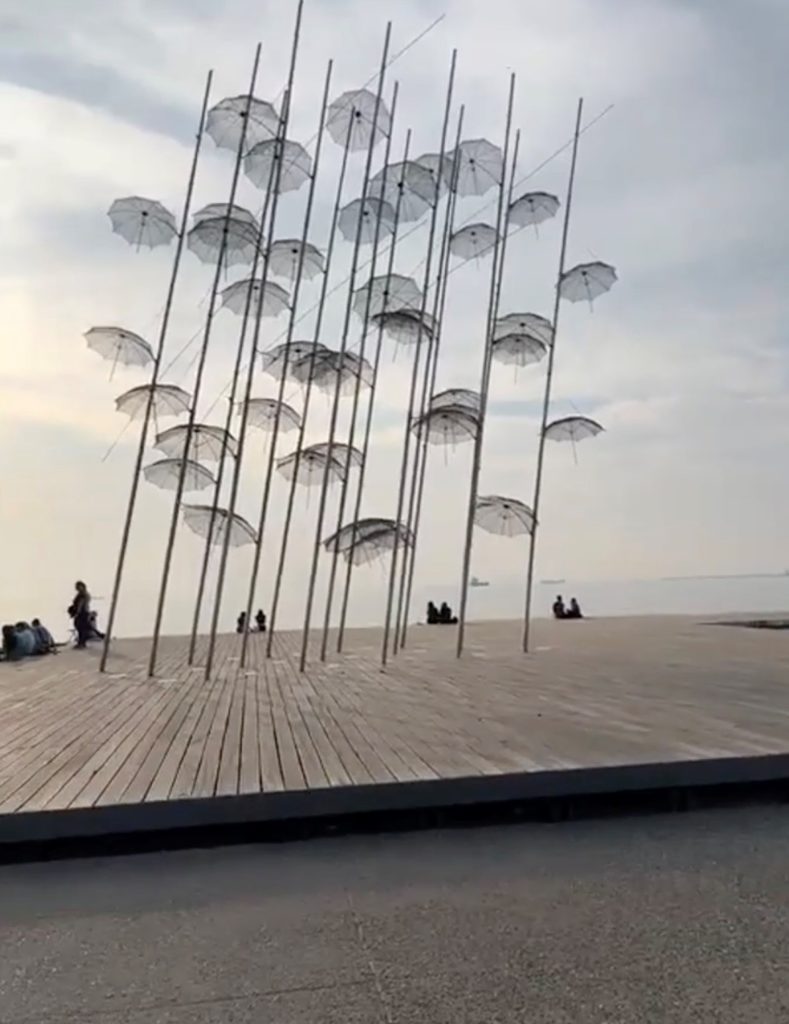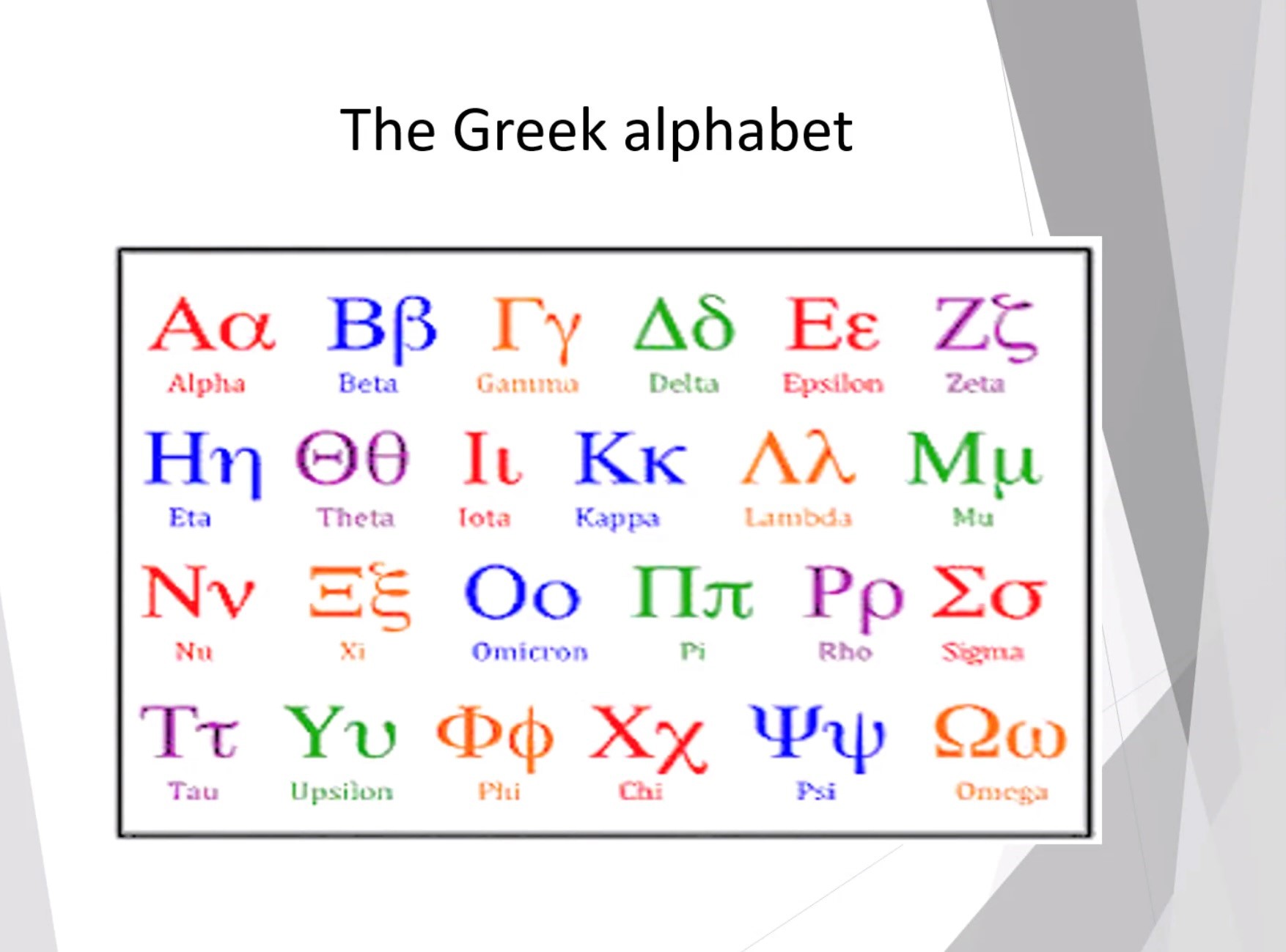
By Jennifer Dixon:
The tour guide was very knowledgeable about the history of Greece. One thing that stood out to me is that at the end of the 15th century, many Jewish people settled in
Thessaloniki from Spain. They were allowed to stay in Thessaloniki because a
great majority of the population was slaughtered or sold as an enslaved person.
They wanted to build back up the population and boost democracy. Half of the
population of Thessaloniki is Jewish. Thessaloniki is multicultural. Muslim,
Jewish, and Christians live together in harmony.
The guide also informed us that now it is very safe to live, and most people live in
apartments. It made me think, is it only a dream of Americans to live in a
house with a white picket fence? Some people live outside of the city and live
in a home. But a good majority live in apartments.
Learning the Greek language was super fun even though, at first glance, it may seem
overwhelming. Because of the letters of the Greek letter. But because the guide
gave the example of conversations, it was super easy to pick up the everyday
language. Now, I am thinking about taking a foreign language.
By Maegan Moser:
On day 1 we studied the Greek Language! We learn about the food and all the different types of coffee that is offered in Greece. One thing that I love is that in Greece, people gather at the café’s and enjoy coffee for hours! Maria Kyriakidou gave us an overview on some of the history of Greece. We learned that Thessaloniki is the second largest city in Greece and it’s very old. When people talk about Greece, they usually think of Athens.
I was also fantasied by the Greek passports. Passports in Greece say Hellenes. There is also a beautiful tower that is known as the White Tower. This Tower is very old but has beautiful architecture. I’m very excited for day 2!
By: Marelyn Natividad
The first day for Greece was quite exciting. We learned about the historical importance of Alexander the Great along with the number of refugees they took from the holocaust. Many were quite astonished by that fact. The Greek alphabet is very different from the United States. It had seventeen consonants and seven vowels. We also learned basic phrases in Greek. My favorite part was the interactive portion, where we were able practice phrases. As for my favorite fact, it is how people from Greece call themselves Hellenes. It is imprinted on their passport too!
By: Katelyn Santello
Day one got me so excited for this program. During the 1st hour, we got to learn about the history and culture of Greece. We got to ask all the questions we wanted, and Maria answered them fully. The next hour of day 1, Popi taught us words and sentences in Greek. Greek is such a different and interesting language, so it was so cool learning a completely different language. We got to practice sentences and have a conversation. Day one got me so excited to see what the rest of the program has in store!
By: Diana Nicolas
We had this amazing Orientation and Greek language class. I’ve learned so much about the Greek culture. We talked about the classical Greek. I don’t remember the name but there is a place in Greece where women are not allowed to visit unless you have some type of permission. I found it interesting that Thessaloniki had a primarily Jewish community prior to the Holocaust. I’ve learned about how much of an effect the Holocaust had on the population of Jews in Greece. We learned the basic way to present ourselves. I was so excited on the first day to learn more.
By: Tyshona Robinson
First Session: Facts & Language
When we first began the first day there was already build up excitement for what’s to come. I am an advocate for traveling, mainly international is my thing. So when going to the opportunity to engulf myself into Greece life and culture this seem like the perfect opportunity to get a sense if I wanted to physically travel there. After the formal introductions we first began our lesson on Greek history specifically with Thessaloniki.
I will say that at first it was a shock to me to learn that Greece has a specific accent. I learned that quickly with our first speaker since she was a little difficult to understand being that hers was so rich. I found it most interesting how the city were learning about is royal and victorious that now it’s a tourist and educational city. Some cool facts I learned is that Thessaloniki, is missing from modern maps being that it did not exist in classical times. Greek empires were divided in the past. Alexander the great had a heavy influence over Greek life and he is still viewed as a trailblazer for his people.
Religion is important for those in Greece with the top three being Christianity Islam and Judaism. A fun fact I learned about Judaism is that in 1942 when the Jewish arrived in Thessaloniki, it was empty after conquest and the people of Thessaloniki need to find a way to become financially settled as a city. Using this opportunity for financial gain now Judaism is a part of life there. Although the majority of the population were Jewish the city of Thessaloniki, who is ran by Muslims.
Lastly within our first session we began to learn some phrases to hold basic conversation to get by in Greece. From kiosk conversation, snacks, how to address peers vs elders, formal vs informal, feminine vs masculine, even just simply introducing yourself so you can ask for help. This was all so nice. Learning phrases especially in a country that speaks a different language primarily is very important. Greek reminds me of the time I attempted to learn French. Very difficult at first, but fully committing and not worrying about how silly you may sound goes a long way.
I really enjoyed the history aspect of this session the most because I am very big into architecture in history when it comes to new countries. I plan to utilize the space to learn more about the history to understand the architecture of Greece. Needless to say “orea” is my new favorite word.
By: Victoria Vonfrolio
The day one of the virtual Greece tour kicked off with the necessities: cultural background. I found it very interesting to not just learn the basics, like colors, days of the week, months, but to learn some of the dialogue used in the everyday routine of the Greek Culture. I think it was interesting to see the use of the kiosk in the everyday Greek life. For us, these kiosks can be compared to 7/11 or wawa, except with their outdoor walking culture, having shops more readily accessible and available are necessary. Therefore, the outdoor kiosks are a must. I found it interesting that the Greek language uses the formal and informal forms. I think it is interesting that so many languages have this use of formal and informal, but the English language doesn’t. I also enjoyed learning about all the commonly used greetings as these greetings were what we used to interact with those from Greece over the virtual trip. Moreover, I thought it was interesting that they chose to include a section about coffee in the informational PowerPoint presentation. I think this shows how important coffee is in the Greek culture. Regarding the Greek alphabet, I thought it was fascinating to learn the Greek alphabet because as a math major, I use these letters all the time. It was more interesting to see how the Greek alphabet is used in the Greek culture and not just as variables on my paper! I would like to know how the Greek alphabet is the alphabet that mathematicians chose to use as their main source of variables. I found the actual architecture of Greece to be stunning. I loved seeing how important history is to the Greek culture as this isn’t necessarily the truth for American architecture. I wish that America too emphasized and valued history in our culture, just like the Greek do. There is so much beauty in Greece, and after today I know it is some place that I most definitely must explore on my own one day.


